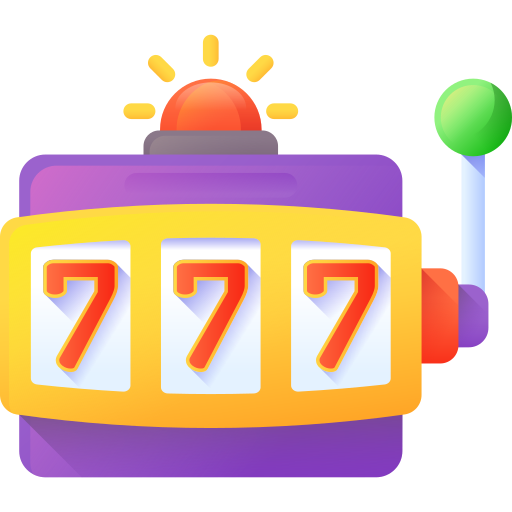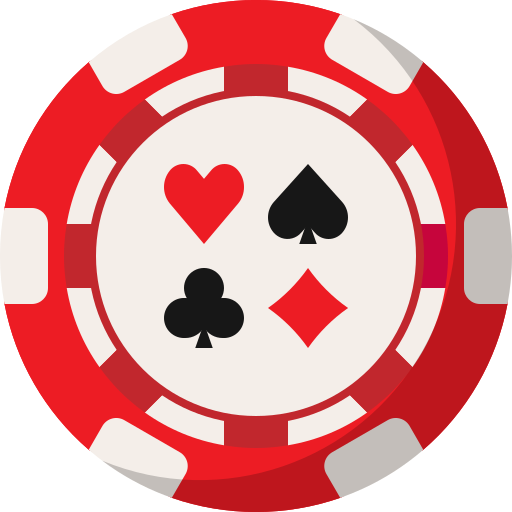In the competitive gambling industry, online casinos must keep their game libraries fresh with the latest offerings. However, the variety of games is just one aspect of what they need to consider. A key factor that attracts both new and seasoned players is the game’s payout rate, commonly referred to in the industry as the RTP (Return to Player) percentage. The greater this percentage, the more favorable the players perceive their winning odds to be.
House Edge and Volatility are also critical concepts that can significantly influence a player’s strategy and chances of success. This article aims to demystify these terms, providing clear insights into how they affect gameplay, and offering valuable guidance for both novice and experienced gamblers navigating the digital casino landscape.
What does online slots RTP mean?
In online gambling, RTP stands for “Return to Player.” It’s a term used to describe the percentage of all the wagered money a slot machine or casino game will pay back to players over time. Essentially, it indicates how much of the money put into a game is returned to players as winnings.
For example, if a slot game has an RTP of 96%, theoretically, it means that for every $100 wagered, the game will return $96 to players in winnings over an extended period. The remaining 4% represents the house edge, which is the casino’s profit margin.
It’s important to note that RTP is calculated over a long period and across numerous plays, not each gaming session. Therefore, while RTP can be a helpful indicator of a game’s potential payback, it doesn’t guarantee that a player will win back that percentage of their money every time they play.
Why RTP is so important?
Online casino players need to understand that while RTP is a theoretical measure, it doesn’t directly dictate if a player will land a substantial win in any given session. The relevance of RTP is more pronounced for regular players. These players often incorporate payout rates into their gaming strategies, typically favoring games from providers known for offering higher payouts. Although it’s unlikely for a player to achieve the exact RTP in a single session, over an extended period, the actual return experienced tends to align closely with the theoretical RTP.
The RTP established by game developers usually doesn’t exceed 100%, as this would be unfeasible for both the operator and the game provider financially. Consequently, casino operators must find a balance in their game offerings between higher and lower RTPs. While games with higher RTPs are more attractive to players, they are less profitable for the operator. Conversely, games with lower RTPs are more profitable but might not be as appealing to players.
Thus, operators often provide a diverse range of games to satisfy both the casino’s and the players’ interests. However, even in cases where games have a lower RTP, the element of chance remains. For instance, in a game with a 97% RTP, it’s still possible for players to experience payouts exceeding 100% or even 200%, especially if they hit rare, high-value winning combinations. To align the actual RTP with the theoretical one, a vast number of rounds would need to be played.
Moreover, it’s essential to remember that a recent significant win doesn’t preclude the possibility of future wins. The outcome of each new round is independent of previous results.
RTP metric is particularly significant for a specific group of players:
- Regular and experienced players: Those who engage in gambling activities frequently pay close attention to the RTP. These players often incorporate RTP into their overall gaming strategy, opting for games that offer a higher payout percentage. The rationale behind this is that, over time, playing games with a higher RTP may increase their chances of receiving a more substantial return on their bets.
- Strategic gamblers: Players who approach gambling with a more analytical mindset view RTP as an essential factor. They understand that while RTP doesn’t guarantee winnings in the short term, it can be a crucial indicator of a game’s potential payout over a long period.
- Budget-conscious players: For players who are careful with their bankroll and aim for extended play sessions, the RTP can guide them to games where their funds may last longer, theoretically leading to more prolonged entertainment.
- Comparative players: When choosing between similar games, RTP can be a deciding factor for players. In such cases, a slightly higher RTP can sway a player’s choice towards one game over another.
The difference between RTP and House Edge
Return to Player (RTP) and House Edge are vital concepts in gambling that offer insights from different perspectives on how casino games are structured in terms of player returns and casino profitability.
What is RTP, we have already described above in this article.
On the other hand, House Edge represents the percentage of total bets that the casino expects to keep as profit over time. This is from the casino’s point of view, where a higher House Edge indicates a greater advantage for the casino. So, if a game has an RTP of 95%, it implies that the House Edge is 5%, meaning the casino expects to keep an average of $5 for every $100 wagered.
There is a direct mathematical relationship between the two: RTP and House Edge together sum up to 100%. Knowing one of these values allows you to easily calculate the other.
The implications of these metrics are significant for players. RTP is commonly used by players to gauge a game’s potential payout, with higher RTP values being more favorable. Understanding the House Edge, conversely, helps players comprehend the built-in advantage that casinos hold in each game.
These concepts are applied differently across various games. For example, some table games like Blackjack have a lower House Edge as compared to many slot machines. However, it’s important to note that both RTP and House Edge are calculated over the long term and may not necessarily apply to short gaming sessions, where variance can lead to significantly different outcomes.
How is RTP determined?
The Return to Player (RTP) of a casino game is typically determined by the game developers and software providers who create the games. These entities design and program the games, including setting the parameters that define the RTP.
- Game developers: They are responsible for the creation and development of casino games. When designing a game, they decide on the RTP based on various factors such as the game’s theme, mechanics, market trends, and player preferences. The RTP is programmed into the game’s software, ensuring it operates according to the predetermined rate over its lifespan.
- Regulatory compliance: The established RTP must comply with regulations and standards set by gambling authorities and regulatory bodies. These organizations oversee the gambling industry to ensure fairness and transparency. In many jurisdictions, there are minimum RTP thresholds that games must meet to be offered to players.
- Testing and certification: Before a casino game is released to the public, it often undergoes rigorous testing by independent testing agencies. These agencies verify that the game performs according to its advertised RTP and that it meets fairness and randomness standards. Only after passing these tests can the game be certified for public use.
- Casino operators: While casino operators host the games on their platforms, they typically do not alter the RTP set by the game developers. However, they may choose from a range of games with different RTPs to include on their site, depending on their target market and player preferences.
Players need to understand that the RTP is a long-term average and not a guarantee of returns in each session. The outcome of each game is still subject to chance and variance, especially in the short term.
Regulators and auditors play a crucial role in ensuring the integrity and fairness of gambling games, including the adherence to declared Return to Player (RTP) rates. These entities are responsible for overseeing and testing casino games to ensure they comply with industry standards and regulations.
Regulators
- UK Gambling Commission (UKGC): One of the most respected regulatory bodies, the UKGC regulates gambling activities within the UK. It sets standards for fairness, including ensuring that the advertised RTPs of games are accurate.
- Malta Gaming Authority (MGA): The MGA is another leading regulator in the online gambling industry. It provides oversight for many European online casinos and ensures games meet specific RTP requirements.
- Alderney Gambling Control Commission (AGCC): Based in the Channel Islands, the AGCC regulates online gambling, ensuring compliance with strict guidelines for player protection and game fairness.
- Curacao eGaming: This regulator provides licenses and oversees online gaming operators in Curacao, a popular jurisdiction for many international online casinos.
- Gibraltar Regulatory Authority (GRA): The GRA regulates the online and land-based gambling activities in Gibraltar, focusing on compliance, player safety, and responsible gaming.
- Swedish Gambling Authority (Spelinspektionen): This body regulates the gambling market in Sweden, including online and traditional gambling, ensuring a safe and legal gambling environment.
- Isle of Man Gambling Supervision Commission: It supervises both online and land-based gambling activities in the Isle of Man, focusing on ensuring fairness and protecting the interests of players.
- Danish Gambling Authority (Spillemyndigheden): Regulates the gambling industry in Denmark, including online casinos, ensuring fair play and protection of vulnerable players.
Auditors and testing agencies
- eCOGRA (eCommerce Online Gaming Regulation and Assurance): eCOGRA is a London-based internationally approved testing agency. It specializes in certifying online gaming software and systems, ensuring games are fair and operate correctly.
- Gaming Laboratories International (GLI): GLI provides world-class testing and certification services to the gaming industry. It tests and certifies that games, including their RTP rates, are fair and comply with regulatory standards.
- iTech Labs: This is another trusted testing laboratory that audits online gaming systems. iTech Labs checks the RTP, Random Number Generators (RNGs), and game payouts to ensure they are fair and comply with regulatory requirements.
- BMM Testlabs: One of the oldest and most experienced private independent gaming testing laboratories in the world, providing professional technical and regulatory compliance services to the gaming industry.
- NMI Metrology & Gaming Ltd: A leading testing and auditing firm providing services in compliance, auditing, and quality assurance for the gaming industry.
- Gaming Associates Europe Ltd: An independent and internationally recognized accredited testing facility, offering a full range of testing and consulting services to the gaming and wagering industry.
- SQS India BFSI Limited: Specializes in software quality control and offers testing services specifically for the gaming industry, including RNG and game payout verification.
- Trisigma B.V.: Provides testing, certification, and inspection services for the gaming industry, ensuring compliance with international standards.
- Quinel M. Ltd: An independent and internationally accredited testing laboratory and inspection body, specializing in the certification of gaming software and systems.
The role of regulators and auditors
Regulators and auditors work to ensure that the gambling industry operates transparently and fairly. They set the standards and enforce rules that guide the operation of gambling establishments, both online and offline.
- Setting standards: Regulators establish the rules and standards that games must adhere to, including minimum RTP percentages.
- Testing and certification: Auditors test the games to ensure they comply with these standards. They check the game’s algorithm, RTP, and RNG to ensure fairness and randomness.
- Compliance monitoring: Regulators and auditors continually monitor casinos and software providers for ongoing compliance. This includes regular audits and reviews.
- Player protection: By ensuring fairness and transparency, they protect the players from unfair practices and potential fraud.
- Market confidence: Their oversight helps build trust in the online gambling market, reassuring players that the games they play are fair and unbiased.
Examples of auditing
- RTP verification: Auditors test games over millions of simulated bets to verify that the RTP matches the declared rates.
- RNG testing: They ensure that the RNGs used in games are truly random, which is essential for fair gameplay.
How RTP is calculated?
Calculating the RTP in gambling involves a mathematical formula that assesses the total amount returned to players as winnings relative to the total amount wagered by the players. Here’s a basic formula for how RTP is calculated:
where:
- Total amount returned to players as winnings: This is the cumulative amount of money that players have won over a certain period.
- Total amount wagered by players: This is the sum of all bets placed by players over the same period.
Can RTP be changed?
Changing the RTP is not a simple process. It involves altering the game’s software and undergoing a series of tests to ensure the game functions as intended with the new RTP setting.
While it is technically possible to change the RTP of some casino games, doing so involves a complex process that must adhere to regulatory standards, ensure transparency, and consider player trust. As a result, RTP changes are not a common or casual practice in the industry.
Frequent changes in RTP can lead to a loss of trust among players. Consistency and transparency in RTP are key to maintaining player loyalty and trust in the fairness of the games.
Where can I find the RTP value?
There are several options on how to do this.
- Check the game’s information or help section: Most online slot games have an information or help section accessible within the game interface. This section often includes details about the game’s features, paytable, rules, and the RTP percentage.
- Visit the casino’s website or game lobby: Many online casinos list the RTP of their slot games in the game lobby or on the individual game pages on their website.
- Read game reviews and casino guides: There are numerous websites and forums where players and experts review slot games. These reviews often include the game’s RTP along with other critical information about the game.
- Contact customer support: If you cannot find the RTP in the game itself or on the casino’s website, you can contact the casino’s customer support for information.
- Check the game developer’s website: Visiting the website of the company that developed the slot game can be useful. Game developers often provide detailed information about their games, including RTP.
- Regulatory bodies and licenses: In some jurisdictions, the RTP of every slot game offered by a licensed casino must be readily available and transparent. You can sometimes find this information on the regulatory body’s website.
- Forums and community discussions: Online gambling forums and communities can be a rich source of information. Experienced players and industry insiders often share insights about various games, including their RTPs.
What is volatility?
Volatility in online slots refers to the risk level associated with playing a particular slot game and how it affects the frequency and size of payouts. It’s a measure of how often and how much a player can expect to win during a gaming session. Here’s a detailed explanation:
High volatility slots
These slots tend to offer larger payouts, but less frequently. High volatility slots are known for their potential for big wins, often through bonuses or jackpots Players might experience longer dry spells without winning, but the wins can be significant when they do occur. They are generally suited for players who are willing to take higher risks for a chance at larger payouts.
High volatility slots examples:
- Book of Ra by Novomatic: RTP is around 96%
- Dead or Alive II by NetEnt: RTP is about 96.8%
- Mega Moolah by Microgaming: RTP is approximately 88.12%
Low volatility slots
Low volatility slots provide more frequent but smaller payouts. This means players can expect to hit winning combinations more often, but the payouts are typically smaller. These games are ideal for players looking for a longer playtime with a smaller bankroll and those who prefer a steady, low-risk gaming experience.
Low volatility slots examples:
- Blood Suckers by NetEnt: RTP is about 98%
- Stardust by Microgaming: RTP is around 96.59%
- Big Bad Wolf by Quickspin: RTP is approximately 97.34%
Medium volatility slots
Medium volatility slots strike a balance between high and low volatility. They offer a moderate frequency and size of payouts. These slots are suitable for players who are looking for a balanced risk-to-reward ratio.
Medium volatility slots examples:
- Gonzo’s Quest by NetEnt: RTP is around 96%
- Starburst by NetEnt: RTP is roughly 96.1%
- Thunderstruck II by Microgaming: RTP is roughly 96.65%
Impact on gameplay
The volatility of a slot game affects how you experience the game. High volatility games might seem more thrilling to some due to the chance of big wins, while others might prefer the consistent, smaller wins of low volatility slots. Understanding a slot’s volatility can help in choosing a game that matches your playing style and risk tolerance.
Not always advertised
Unlike RTP, volatility is not always explicitly stated by game developers or casinos. However, it can often be inferred from the game’s paytable, bonus features, and jackpot size.
What is the variance?
There is a distinction between variance and volatility in the context of online slots. While the two terms are often used interchangeably, they do have different implications.
Variance specifically refers to the deviation from the expected Return to Player (RTP) of a slot game. It’s about the difference between what players expect to win (based on the RTP) and their actual results over a period. It indicates the level of fluctuation or deviation a player might experience in their winnings compared to the average RTP.
For example, if an online slot has an RTP of 97%, it means players expect, on average, to get back 97 cents for every 1 USD bet over a long period. However, due to variance, the actual winnings for a player in the short term can be higher or lower than this amount.
Variance vs. RTP
The RTP is a long-term statistical average calculated over millions of spins. Because of this, the actual return a player experiences in the short term (such as during a single gaming session) can vary significantly. High variance means that the actual winnings can deviate substantially from the expected RTP in the short term. This can result in periods of both higher wins and higher losses.
Variance and gameplay
Variance influences the slot’s behavior at a specific moment in time. A slot might have high volatility but still go through phases where it pays out more frequently (low variance) or less frequently (high variance) than average. Understanding variance helps players manage their expectations and bankroll. For instance, even in a high RTP game, they might experience a streak of losses or wins due to variance.
Variance and player strategy
Variance significantly affects the player’s experience. It can determine how ‘exciting’ or ‘predictable’ a game feels, depending on the frequency and size of the wins. High-variance games can be thrilling but also risky, while low-variance games offer a more steady and less risky gaming experience.
Understanding a game’s variance is crucial for effective bankroll management. Players engaging in high variance slots should ideally have a larger bankroll to withstand periods of losses. Conversely, low-variance games are more suitable for players with smaller bankrolls who want to extend their playtime and enjoy more frequent wins.
Knowledge of variance can inform a player’s strategy. For high-variance games, a strategy might involve playing fewer but higher-value bets. In contrast, low-variance games might be better suited to numerous smaller bets.
Online Roulette RTP
In online roulette, the RTP varies based on the game variant. European Roulette, which includes a single zero on the wheel, typically offers an RTP of around 97.3%. This version is often preferred by players due to its higher RTP compared to American Roulette. On the other hand, American Roulette features both a single zero and a double zero, which increases the house edge, resulting in a lower RTP of approximately 94.74%. The additional double zero in American Roulette affects the odds of winning on any single bet, thus reducing the overall RTP.
French Roulette, similar in layout to European Roulette, includes additional rules like ‘La Partage’ and ‘En Prison’ that can further enhance the RTP. ‘La Partage’ offers players half their even-money bets back if the ball lands on zero, potentially increasing the RTP to 98.65% for those specific bets. The ‘En Prison’ rule allows players a chance to recover their stakes after a zero spin.
Other variations of online roulette, such as Multi-Wheel Roulette or Mini Roulette, come with their own set of rules and respective RTPs. These variations introduce different gameplay elements, affecting the RTP based on the specific rules or additional features they incorporate.
Online Blackjack RTP
The RTP in online Blackjack can be notably high compared to other casino games, but it varies depending on the game rules and the player’s skill level.
Typically, the RTP in standard Blackjack is around 99.5%, which is one of the highest among casino games. This high RTP assumes that the player is using a basic blackjack strategy, which involves making the optimal decision (hit, stand, double down, split, or surrender) for each hand based on the player’s cards and the dealer’s up card. The basic strategy minimizes the house edge and maximizes the RTP.
However, the RTP can fluctuate based on the specific rules of the online Blackjack variant being played. Factors that can affect the RTP include the number of decks used, the dealer’s actions on soft 17 (hit or stand), the payout for a blackjack (typically 3:2, but sometimes 6:5), and the availability of certain player options like doubling after splitting, surrender options, and splitting rules.
For instance, if a game uses more decks, it generally lowers the RTP slightly. If the dealer stands on soft 17, this rule favors the player, increasing the RTP. A 3:2 payout for a blackjack is more favorable than a 6:5 payout, affecting the RTP positively.
Online Baccarat RTP
The RTP in online Baccarat varies depending on the type of bet placed, as the game typically offers three main betting options: betting on the Player, the Banker, or a Tie.
- Banker Bet: The Banker bet is generally considered the best in terms of RTP. It has an RTP of approximately 98.94%, assuming the standard commission of 5% on winning Banker bets. This means that for every dollar bet, the expected return is about 98.94 cents over the long term. The Banker bet’s lower house edge makes it a popular choice among players.
- Player Bet: Betting on the Player has an RTP of around 98.76%. This bet is also a favorable option in Baccarat, as it comes with a relatively low house edge. The slightly lower RTP compared to the Banker bet is because the Banker acts after the Player, giving the Banker a slight advantage.
- Tie Bet: The Tie bet has a significantly lower RTP, usually around 85% to 86%, though this can vary. The exact RTP for the Tie bet can depend on the specific rules of the game and the payout for a tie. Despite its higher payout ratio, the low RTP makes it a less favorable option compared to the Banker and Player bets.
Online Video Poker RTP
The RTP in online video poker can vary widely depending on the game variant and the player’s strategy. Video poker is known for having one of the highest RTPs among casino games, often exceeding that of slots and other table games.
Different versions of video poker, such as Jacks or Better, Deuces Wild, and Bonus Poker, each have their unique RTPs. For instance, a skillfully played game of Jacks or Better might offer an RTP of around 99.5% or more. In some cases, like with certain versions of Deuces Wild, the RTP can even exceed 100%, assuming optimal strategy. This high RTP is part of what makes video poker a popular choice among online casino games.
A key factor affecting RTP in video poker is the player’s ability to make strategic decisions, particularly in choosing which cards to hold and which to discard. The game combines elements of chance with skill, and mastering the strategy is essential for achieving the higher end of the RTP spectrum.
Moreover, the RTP is also influenced by the game’s paytable, which can vary between different online casinos and specific game variations. Even minor changes in the paytable can significantly impact the overall RTP. Players looking to maximize their potential returns should seek out video poker games with the most favorable paytables.
Best slots with high RTP
| Online Slot | Provider | RTP | Volatility | Best Casino to Play |
|---|---|---|---|---|
| Starburst | NetEnt | 96.1% | Low | Bets.io Casino |
| Book of Dead | Play’n GO | 96.2% | High | 7Bit Casino |
| Gonzo’s Quest | NetEnt | 96.0% | Medium | Stake Casino |
| Mega Moolah | Microgaming | 88.12% | High | Cloudbet Casino |
| Bonanza | Big Time Gaming | 96.0% | High | Jackbit Casino |
| Immortal Romance | Microgaming | 96.86% | High | BitStarz Casino |
| Thunderstruck II | Microgaming | 96.65% | Medium | BC.Game Casino |
| Dead or Alive II | NetEnt | 96.8% | High | CryptoLeo Casino |
| Reactoonz | Play’n GO | 96.51% | High | mBit Casino |
| Fire Joker | Play’n GO | 96.15% | Medium | Vave Casino |
Top crypto casino to try high RTP slots
Why is it better to play casino games with high RTP and medium volatility?
When playing online casino games, opting for titles with a high Return to Player (RTP) can be beneficial as it suggests a higher percentage of the total bets will be returned to players over an extended period. This higher RTP increases the likelihood of players recouping their bets and potentially securing winnings, making these games more appealing for those looking for better long-term value in their gaming experience.
The choice of volatility in casino games, however, hinges on individual player preferences and objectives. High-volatility games offer the potential for large wins, but these wins occur less frequently, which might suit players who enjoy the thrill of chasing big payouts and are comfortable with longer periods without wins. On the other hand, low-volatility games provide more frequent but smaller wins, appealing to players who prefer a steady gaming experience with more consistent, albeit smaller, payouts. This can be particularly attractive for players with smaller bankrolls or those who wish to extend their playtime.
Therefore, while high RTP games are generally more favorable in terms of potential returns, the ideal volatility level varies based on a player’s risk tolerance, bankroll size, and overall gaming strategy. Some players might seek the excitement and high-risk, high-reward nature of high-volatility games, while others may prioritize the consistent but smaller returns of low-volatility games. Ultimately, the best choice balances personal enjoyment with the strategic considerations of each player’s unique gaming preferences.
Final thoughts
Understanding RTP, House Edge, Volatility, and Variance is crucial for anyone engaging in online gambling. RTP provides insight into the potential long-term returns of a game, while the House Edge offers a perspective on the casino’s advantage. Volatility and Variance, on the other hand, delve into the risk and reward dynamics, influencing how often and how much players can win.
This comprehensive guide has aimed to demystify these key concepts, helping players make more informed decisions when choosing online gambling games. Remember, while these metrics offer valuable insights, the unpredictability and excitement inherent in gambling always prevail. Responsible gaming, combined with an understanding of these fundamental concepts, can greatly enhance your online gambling experience, making it more enjoyable and potentially more rewarding.













 New crypto casinos
New crypto casinos VIP crypto casinos
VIP crypto casinos Anonymous crypto casinos
Anonymous crypto casinos Crypto Poker
Crypto Poker Free Spins Bonuses
Free Spins Bonuses



